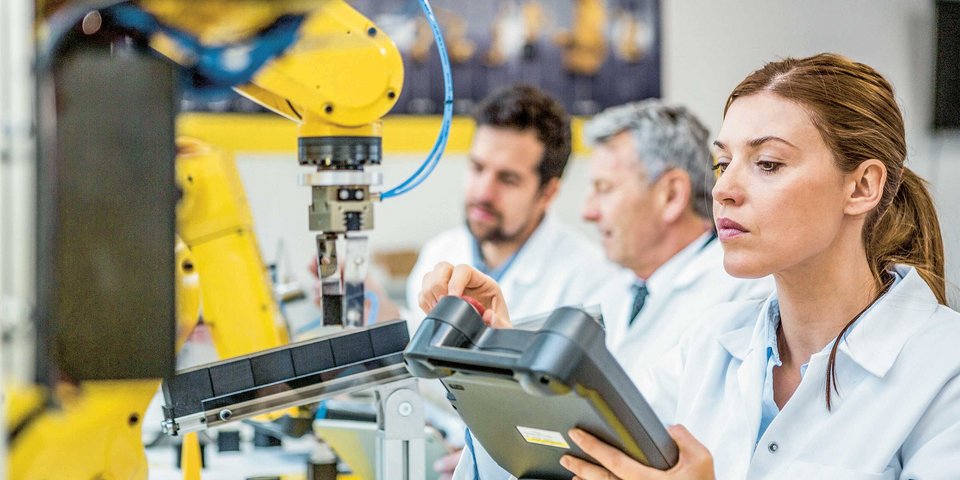 picture alliance / Westend61
picture alliance / Westend61COVID-19: Safely returning to work
Guidelines providing practical assistance to businesses.
SW – 05/2020
‘We want to ensure safe working practices during the pandemic in as wide
a range as possible of industry and small and medium-sized enterprises. Employers have a particular
responsibility for their staff in order to protect them from infections.’ This was
the decision adopted by
the Chancellor and the Heads of Government of the Länder on May 6, 2020, when
they decided to further relax measures to contain the COVID-19 pandemic. As
restrictions are eased, employers are increasingly faced with the question of
how they can fulfil their responsibilities and ensure their employees remain
healthy. There are OSH standards and guidelines at both EU and national level
which are intended to help employers and provide practical assistance.
‘Healthy workplaces – Stop the pandemic’
This is the slogan for the action plan launched by the
European Agency for Safety and Health at Work (EU-OSHA) on 7 May 2020 to
address the occupational safety and health challenges caused by the current
pandemic. The action plan includes guidelines,
information and awareness raising materials that provide guidance
on both returning to work and home-based teleworking.
EU-OSHA’s guidance ‘Back to the
workplace - Adapting workplaces and protecting workers’ aims to help
companies provide workers with the information they need and put in place
measures to prevent infection. The guidance includes specific recommendations and
covers the following areas:
- risk
assessment and appropriate measures,
- involving
workers,
- taking
care of workers who have been ill,
- planning
and learning for the future, and
- staying
well informed about the latest information.
The guidance also contains a collection of links to information from
different countries for specific sectors and professions.
At the very start of
the COVID-19 crisis, EU-OSHA published
its ‘Guidance for
the workplace’, which compiled the most important information
on the coronavirus, on preventing the spread of infections, on the procedure to
be followed when COVID-19 is suspected or confirmed in the workplace, and other
information and recommendations related to the outbreak of COVID-19.
Avoiding the risk of a second wave of infection
The International Labour Organization (ILO) has warned that without
adequate protection for returning workers, a second wave of the virus could occur,
and it has published some practical recommendations for safely returning to
work. On 28 April, the World Day for Safety and Health at Work, the ILO urged
governments to put in place measures to prevent and control COVID-19 in the
workplace, with the active involvement of employers’ and workers’
organisations. All employers need to carry out risk assessments beforehand and
ensure that their workplaces meet strict occupational safety and health
criteria in order to minimise the risk of workers being exposed to COVID-19 and
prevent a second wave of infection in the workplace.
Sector-specific information and recommendations
On 16 April 2020, the Federal Ministry of Labour and Social Affairs
(BMAS), together with the German Social Accident Insurance (DGUV), introduced
the ‘SARS-CoV-2 Occupational Safety and Health Standard’, which sets out specific
requirements for occupational safety and health during the coronavirus crisis
(see article Apr 2020). Since then,
the German social accident insurance institutions have refined the general
standard to reflect the specific requirements of each sector and have published special webpages with this
information. Additional information on how to deal with COVID-19 in the
education sector has also been compiled, containing specific recommendations
for day-care and
childcare facilities, as well as for schools,
universities and research institutions. This information is
currently available in German only.
An additional collection of guidelines
and good practices for occupational safety and health in the context of COVID-19
at both EU and national level can be found on the website of the French OSH
institution EUROGIP (French only).
